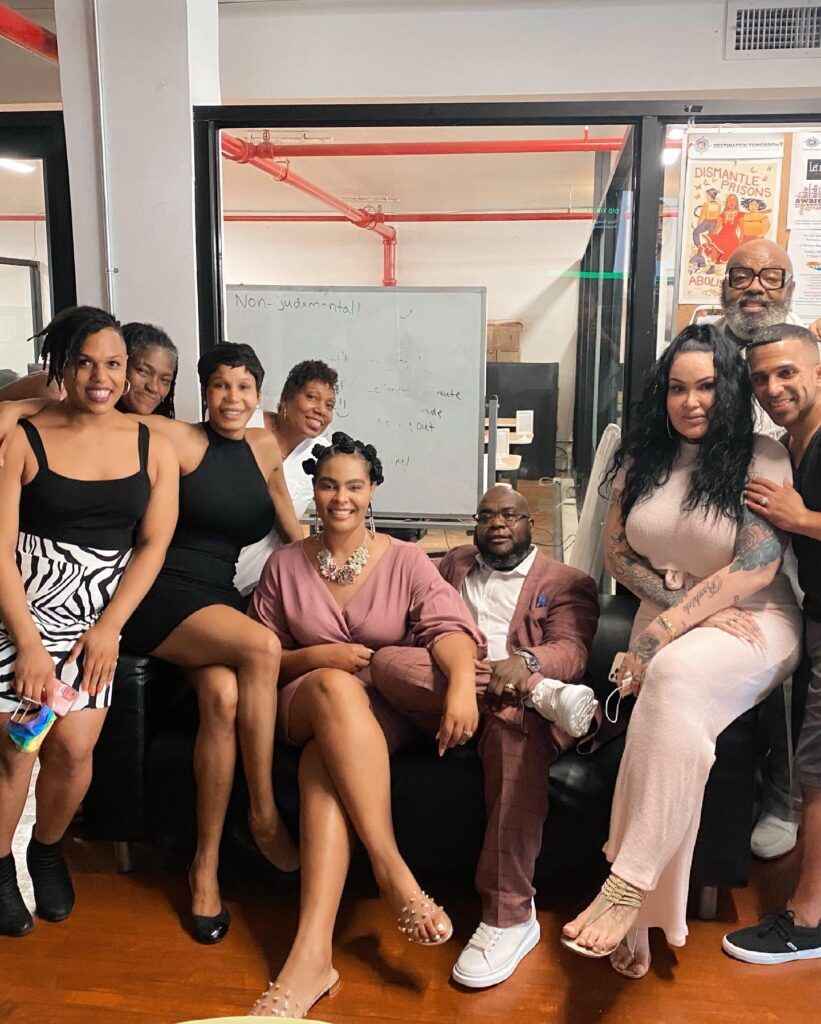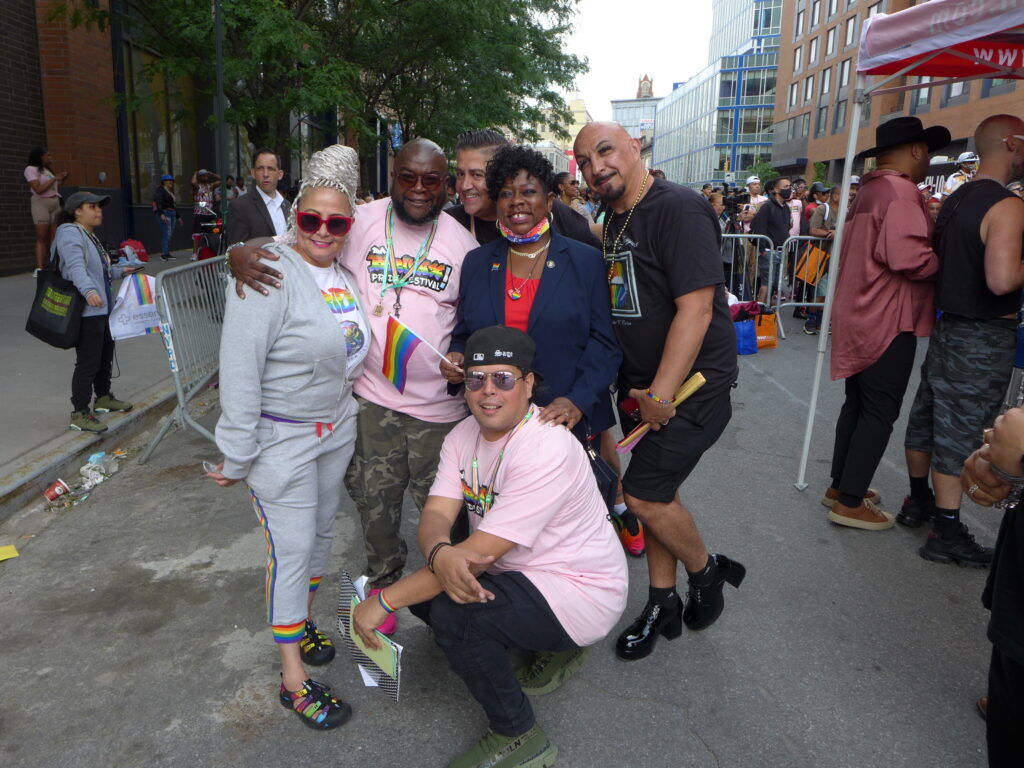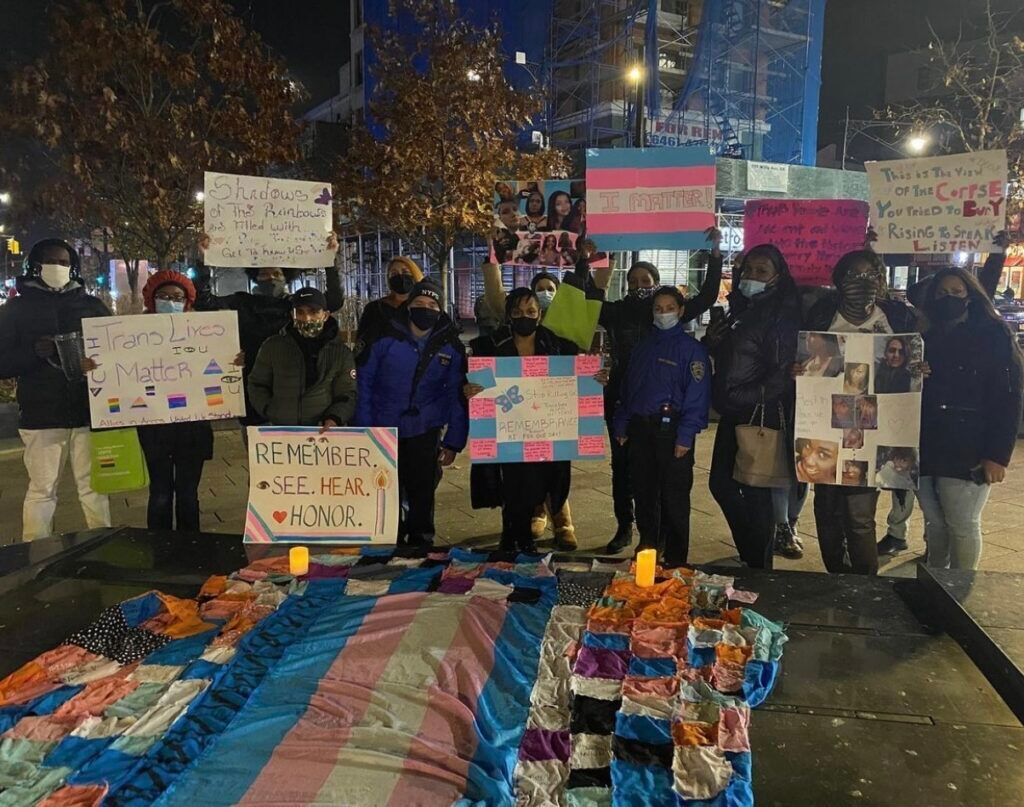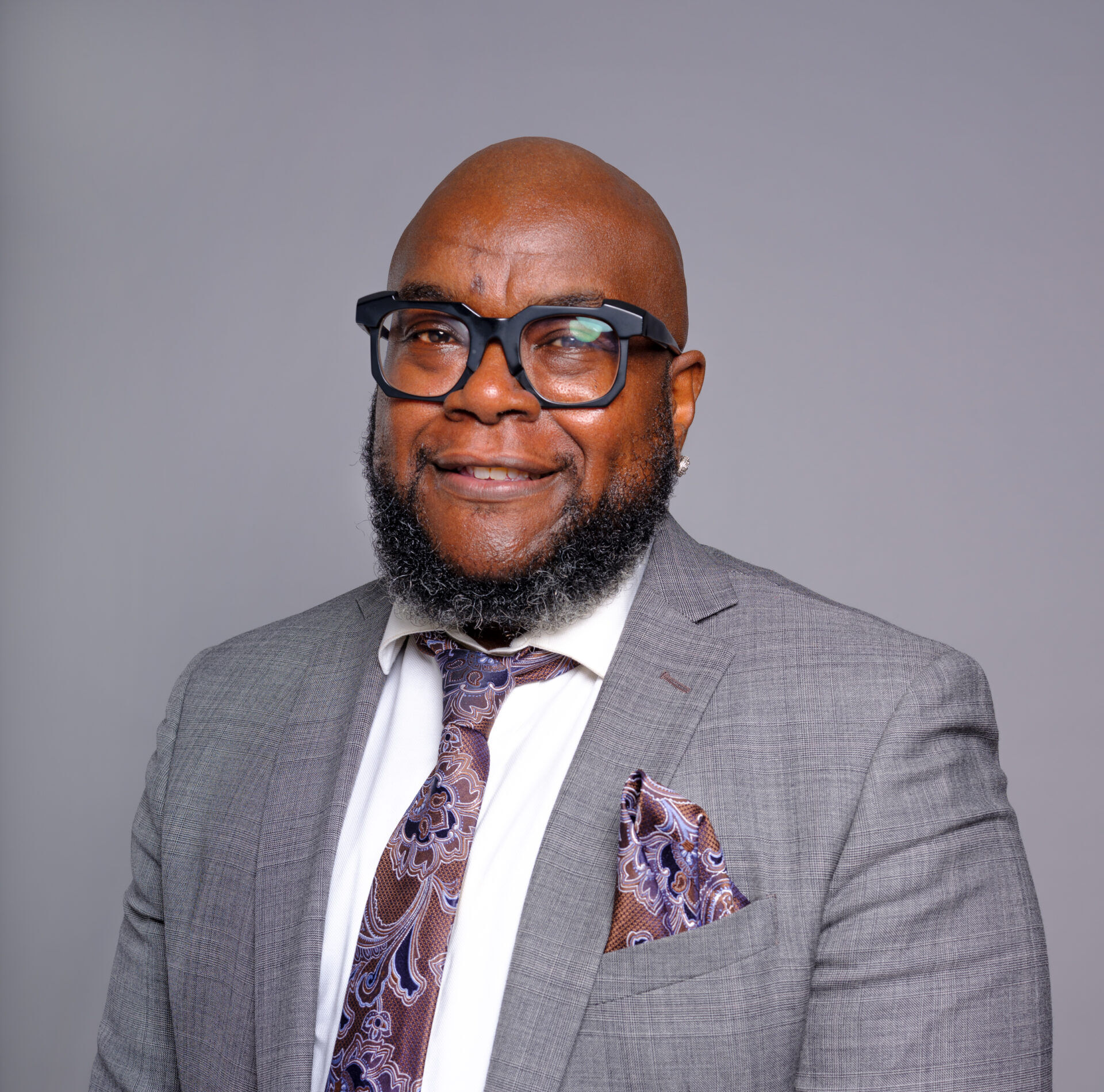LGBTQ folks deserve so many things, housing, healthcare, food security, financial stability, and community. The grassroots nonprofit Destination Tomorrow recognizes and since 2009, has been striving to provide all of these to the LGBTQ community of New York City.
Located within the South Bronx and helmed by its Black and trans founder and executive director Sean Ebony Coleman, Destination Tomorrow dedicates its efforts towards empowering the most vulnerable within the queer and trans community. Seeking holistic, sustainable support over temporary fixes, Destination Tomorrow establishes pathways for members of the LGBTQ community to thrive economically, socially, mentally, and physically.
Their vision is to “provide consistent, necessary, and empowering resources to LGBTQ+ clients, we envision a future with and for them that avoids crisis situations through action plans and connection to community”. Lofty, indeed, but the Destination Tomorrow team tackle the challenge head on, offering support in career readiness, housing, community engagement, LGBTQ-affirming healthcare, and more to all queer and trans folks who need it.
INTO spoke with Coleman to discuss the origins of the nonprofit organization, how it’s navigating a country where “Don’t Say Gay” laws run rampant, and the most pressing issues within the LGBTQ community.
What was the inspiration behind Destination Tomorrow?
I started Destination Tomorrow in 2009 because I didn’t see myself represented in community spaces and leadership roles. I was working for another organization in the South Bronx and it just struck me as odd. In a borough that was predominantly Black and Brown, there was someone who didn’t identify as such at the helm of this organization and determining what we were going to be able to acquire in that borough. So that was one of the reasons.
The other reason is I’m from the house and ballroom community and I watched a lot of my family and friends pass away from HIV/AIDS in the early 80s and 90s. It troubled me that a lot of the organizations that were acting up didn’t act up for Black and Brown people in the same ways. Even still today, [HIV/AIDs] is still primarily impacting communities that are Black and Brown.

I always use Black and Brown because we say communities of color and then folks jump onto that bandwagon when it’s convenient for them and jump right out when it’s not. But that was the reason why I wanted to make sure that a person of the community was spearheading discussions that were impactful for us and not changing the narrative in a way that would serve other folks and not community members.
What is Destination Tomorrow doing to support to LGBTQ youth now impacted by the U.S.’s “Don’t Say Gay Bills?
The thing with Destination Tomorrow, what we do is look at root causes and then try to address those root causes and not be too political. We know overwhelmingly LGBTQ youth are one of the prominent populations that identify as homeless or potentially displaced. So our main focus is on what we are doing to house our young people and expanding what that [youth] age range is in New York.
It only went up to 21. So if you were over 21, you would age out of a system and there was no other system in place to kind of capture you there. You’re just on your own and you’re going into an adult shelter system where you may not be ready mentally, physically, or emotionally.
So that’s one of the other things that we do as well, try to mobilize the community to make them understand no matter where you fall on the spectrum, we’re all in this together.
Our goal was to prepare our young people for the everyday realities that they’re dealing with. Sure, “Don’t Say Gay” is a horrible sentiment, but at the end of the day, we are dealing with homelessness, food insecurity, young people that are dealing with gender and sexual identities, crises, and challenges and those kinds of things. Our goal has always been to meet the young people where they’re at. We’ll fight behind the scenes around those really crazy laws that are being passed to speak on it and not at it with young people.
I think one of the most important things for us to do is to organize better when it comes to anti-LGBTQ resentment across the board. I think we’re so used to being reactive that we’re running backwards. You don’t get an opportunity to formally organize what a response could and should look like. We don’t get an opportunity to raise funds like we should be doing to respond to laws like that.

They’re doing conversion therapy, attacking sex workers, and Black trans women are being killed. All of these different things are happening and it’s not by accident, but we’re only responding to one or two of those things, as opposed to seeing the entire picture and coming up with adequate responses and funding.
So that’s one of the other things that we do as well, try to mobilize the community to make them understand no matter where you fall on the spectrum, we’re all in this together. The attacks are on purpose with the same goal and we have to recognize and figure out how we work together to address them and raise money.
What are some of the most pressing issues that LGBTQ youth are facing within New York?
Housing. And not just LGBTQ youth, LGBTQ folks. New York is one of the most expensive places to live. Incomes have never been on par with how much it actually costs to survive in New York. So I think one of the most pressing things that we’re looking at right now is coming up with unique housing options. We are working with the city to do just that.
I just want to say this. When it comes to LGBTQ youth, they have, for the most part, a safety net. Then there’s a mechanism in place to make sure our LGBT seniors are okay. So anywhere from 16 to 24, you have the safety net. And if you start at 55 or 60 and older, you have the safety net. It’s those folks in the middle from 25 to about 55 that don’t have a safe space, an organization, or any designated housing options.
And that’s what we’re working on, to fill that gap. To make sure that if you’re 25 and you’ve aged out of the youth system, we have a space for you that is safe, affirming, and working with you to help you accomplish your goals, as far as housing is concerned and independent living is concerned if those are your goals.
All of our programs are community centered. We sit down and we have discussions with the community and we figure out how we can address what they’ve brought to us. Because of that, we are able to do housing. Can’t really announce all of it, but we have three new housing projects and we did it in a way that we catch you wherever you are.
There’s a 90-day emergency housing program that we’ve already started called the Sex Workers Immediate Temporary Comprehensive Housing (SWITCH) program. Trans and gender non-conforming folks 25 and over who are former or current sex workers, because sex work is real work, can stay with us for about 90 days. Our goal is to work with them on getting vouchers or qualify for any other program that they may have not known about or didn’t understand how to navigate the red tape to get to it. Then we transition them into independent living or transitional housing.
I think the beautiful thing about Destination Tomorrow, and I’m not just saying that because I started it, is that we want everybody to get to where they want to be, whether it’s staff or whether it’s community member
We are working with the city. We have 127 apartments that will be rolling out soon for LGBTQ folks because we had a bunch of folks and programs, but landlords didn’t want to rent to them. Those city programs are too shaky. We don’t know if we’re going to get our money. So we are now going to become the landlord. We’ll rent out apartments to our community.
One of the other things we’re working on is food insecurity. We’re in the South Bronx, and the South Bronx is a food desert. As inflation continues to hit us hard, those poor communities are the communities that are going to do without. Fresh fruit and produce and those kinds of things are key among what we’re looking to make sure we have within our food pantry.
The third piece of it, we partner with TD Bank. I love them because they saw the potential in that small Black trans organization in the South Bronx. They’ve been rocking with us for like five or six years now and they do financial literacy. What we’re going to add to financial literacy is homeownership as well, the first true way to build wealth. So why are we not having that discussion in our community?
If folks want to get involved or help out, volunteers are always necessary to help with the food pantry. We need y’all or just continue advocating with us. I think those are the things that we should be addressing and putting money towards as well.
What training goes into ensuring that your staff are effectively able to support community members that are coming through Destination Tomorrow’s programs?
It depends on what area they’re going in. We have such wonderful relationships and partnerships with the city. We take advantage of most of those [trainings], like motivational interviewing skills, popular opinion courses, and harm reduction courses. We want to make sure that our staff not just has the lived experience, but they understand how to meet all community members where they are. So it just depends on what program and what portion of the population they’re going to be working with.

For some of my other staff, we also do budgeting and grant writing as well because we are a funder. We are the grant maker for the Gilead TRANScend Community Impact Fund. Gilead gives us $1M every year, and we look for trans organizations nationally and we get the money out [to them], up to $30,000 per organization. And to date, we’ve given out about $980,000.
I think the beautiful thing about Destination Tomorrow, and I’m not just saying that because I started it, is that we want everybody to get to where they want to be, whether it’s staff or whether it’s community members. I have staff that are training for other positions and I’m hopeful that they’ll stay with us, but even if they don’t stay with us, we know that they have the knowledge that they’re going to need to really be impactful within LGBTQ community spaces and provide services for our community.
What’s your hope for the expansion of Destination Tomorrow?
That there’s a Destination Tomorrow or something similar in every city or state where there’s a young, queer, LGBTQ, Black or Brown person. That no person ever has to feel like they have to leave their neighborhood in order to receive the affirming care that they deserve. My hope is that others will pick up the model and open something similar to make sure folks are not left behind.
I think the other hope is that we’re grooming leaders. Too often when we’re having discussions around LGBTQ stuff the face that’s on the screen doesn’t reflect you. I think we need to be more mindful as we groom this next generation.
I want to make sure that if they decide that they want to go into politics that there’s a space for them in politics. I want to see those little trans boys and girls really taking ownership of who they are and then being so proud of who they are that they are on national platforms discussing it and saying what it took to get them to that point, then putting programs together like that to get others to that point. That would be the second part that I’d love to see.
Help make sure LGBTQ+ stories are being told...
We can't rely on mainstream media to tell our stories. That's why we don't lock our articles behind a paywall. Will you support our mission with a contribution today?
Cancel anytime · Proudly LGBTQ+ owned and operated
Read More in Impact
The Latest on INTO
Subscribe to get a twice-weekly dose of queer news, updates, and insights from the INTO team.
in Your Inbox
















